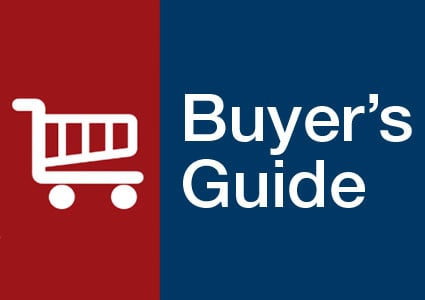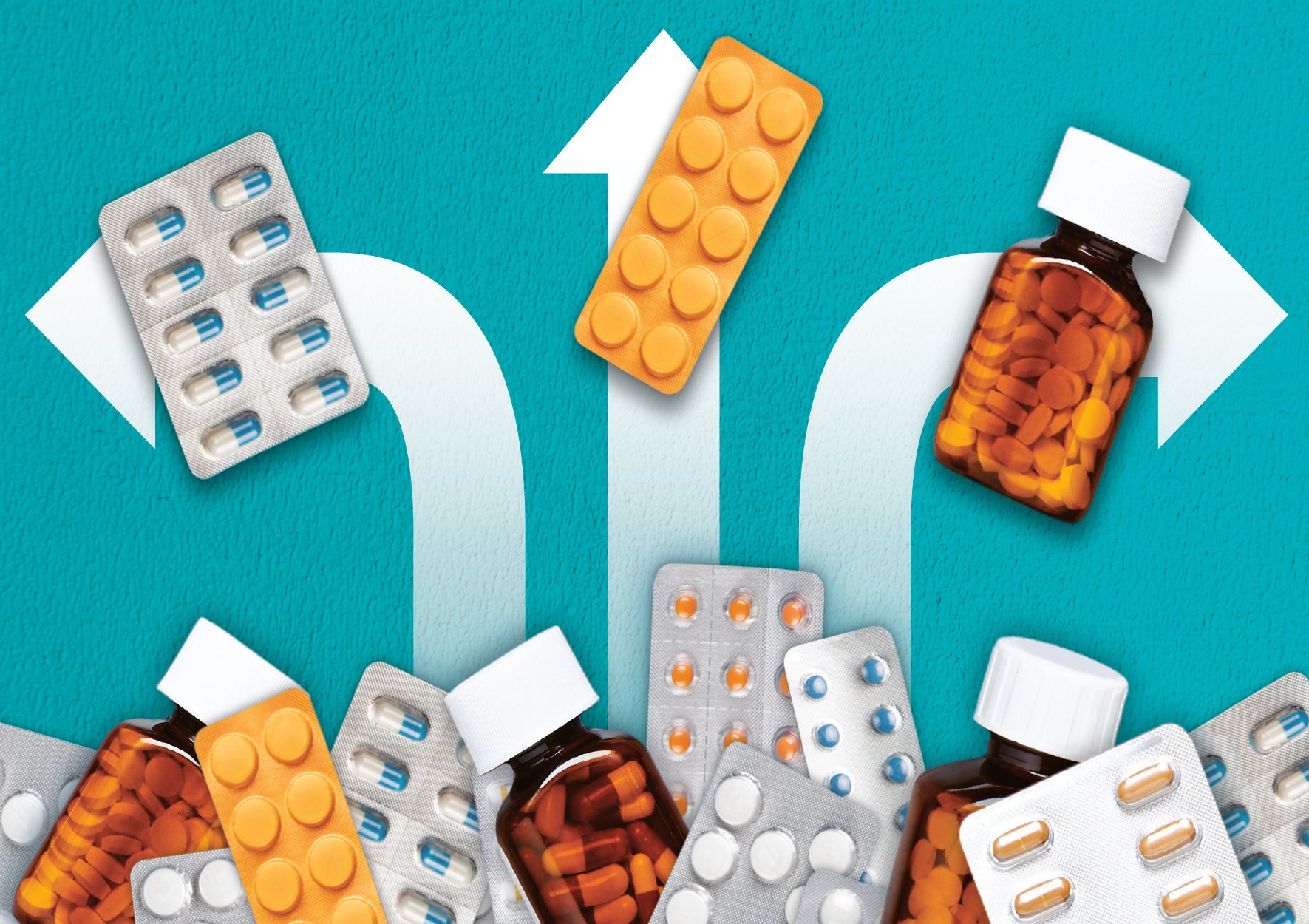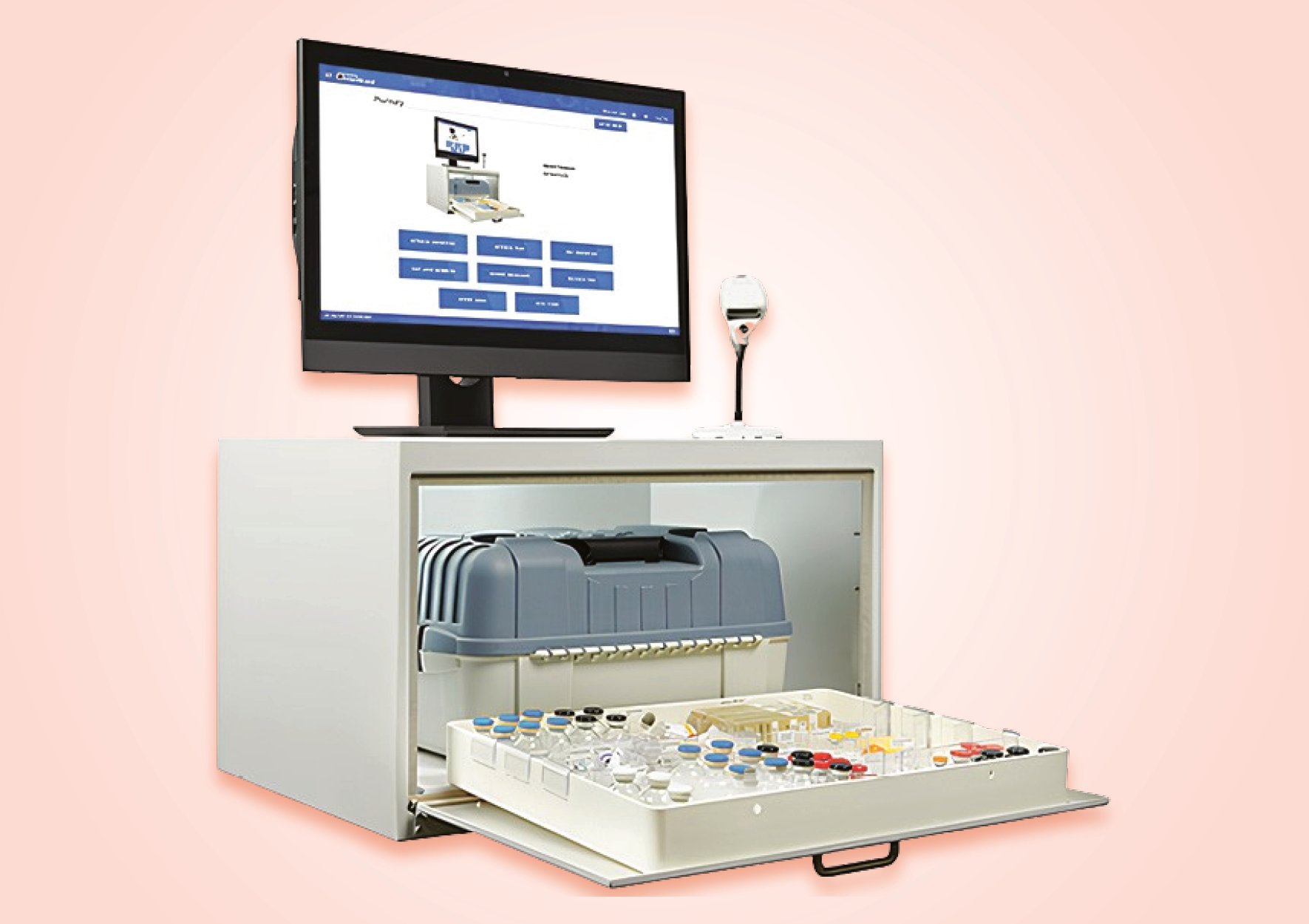- Show Menu
- Contact Us
- FAQs
- Reader Service
- Survey Data
- Survey Winners
- Testimonials
- Upcoming Events
- Webinars
- White Papers
Product Spotlight Baxa Corporation
Located in Louisville, Kentucky, University Hospital is a 400-bed teaching hospital that specializes in trauma, stroke, oncology and high-risk obstetrics. The hospital serves the community and local universities—providing comprehensive diagnosis and progressive medical treatment.
The inpatient pharmacy has upwards of 30 pharmacists working on clinical practice and performing the day-to-day operations at our large institution. We are actively involved in the organization and administration of clinical drug research and our pharmacists serve as preceptors for both training pharmacy students and residency training for pharmacy graduates.
Compliant Cleanroom Policies and Procedures
We recently completed the remodeling of our pharmacy, which included building a new IV compounding cleanroom. Though we already had a good understanding of the USP <797> regulations, having personally read the chapter, we wanted to be sure that our policies and procedures going forward would be in complete compliance, and reflect the final revision released in June 2008. Our goals in attending the STAR Center programs were to fine tune our policies, clarify specific issues, and ready ourselves to begin work in our new cleanroom with best practices in place. Having a colleague who previously took a course at the STAR Center, I was already aware of the benefits the courses could provide in resources and education. Due to the variety of scheduling options, I was able to attend two class sessions, back to back: Aseptic Processing and Compliance Tools for USP <797> Safe Handling and Preparation of Hazardous Drugs
Classroom Education
The programs provide practical demonstration in sterile product compounding, room design, and <797> training. They did a very good job of addressing specifics, from hood types, airflow velocity, and particle counts, to proper hand washing and gowning techniques. The instructors at STAR Center ably addressed why these techniques were essential, not only for <797> compliance, but also for overall patient and pharmacist safety.
Generally, the format of the classes allowed for practical demonstration by the instructor followed by class participation using proper technique. We were able to take advantage of the abundant resources and equipment available at the STAR Center to observe what happens as the result of improper technique, including smoke testing and particle counter results, which revealed the contamination probabilities inherent in handling and processing hazardous drugs. Though I had a firm understanding of these types of results in theory, it was beneficial to see actual, observable results.
The class of approximately 30 students ranged from those just beginning to design a cleanroom to those who had completed installation and were attending mainly for interpretation and implementation of <797> standards. We fell into this latter group, thus, our focus was on USP <797> compliance. Nonetheless, I did pick up some valuable pointers on maintaining our engineering controls and ventilation system.
The discussions of laminar vs. unidirectional airflow—along with demonstrations of airflow disruptions, from movement in the room to improper placements in the hoods—was particularly useful. An especially informative activity was the instrutctor-led walk-through, above the lab, which gave us a detailed overview of how the room was built along with engineering controls needed to maintain the cleanroom. Not often do you get to walk on top of a cleanroom!
Not all the attendees were pharmacists; rather quite a few were technicians, which provided additional perspectives on compounding issues. We also learned what challenges other institutions were facing, both in design and implementation, as well as day-to-day practice. Several of the attendees were working in oncology pharmacies and there were questions on negative pressure and hazardous drug storage practices. There were also discussions on BUD and QA requirements. With the variety of attendees from all levels of pharmacy practice, there was certainly a range of familiarity with the content of <797>, and awareness of what the compliance points would be.
Networking Benefits
While the educational aspect of the courses was informative and concise, the networking connections were also a great benefit. Contact information for the attendees and instructors was included and we were encouraged to keep in touch should we have questions in the future. Since taking the course, both the instructors and my fellow classmates have been an invaluable resource not only in implementing USP <797> standards, but also on other projects we are implementing, such as safe handling of RCRA hazardous waste. As an added incentive for those in the planning stage of building a cleanroom, the instructors offered to review submitted blueprints for cleanroom design and provide specific suggestions on how to proceed.
Recommendations
I would certainly recommend the courses at STAR Center to anyone working in hospital or long-term care pharmacies that compound IV products, especially in light of the new regulatory standards now in place.
In our institution, we had designated the new IV room a priority, and my background included extensive IV room experience, however I did not have the time to read and learn all the issues involved in training personnel for working in a cleanroom, maintenance, etc. Institutions facing similar cleanroom implementation issues may find the new standards overwhelming. The STAR Center classes are a good way to get a quick reality check on what needs to be done and how to accomplish it. I will continue to utilize both the training techniques and education I received as well as the contacts I made with the instructors and my fellow students to provide much needed input and advice on future hospital projects.
Nancy K. Snyder BPharm, MBA, is assistant manager of inpatient pharmacy at the University Hospital in Louisville, Kentucky. She received her BS in pharmacy from Butler University and her MBA from the University of Guam. Prior to assuming her current position, she served as operations manager of PharMerica Louisville and previous to that, as assistant manager of Kindred Healthcare LTC Pharmacy in New Albany, Indiana.
Like what you've read? Please log in or create a free account to enjoy more of what www.pppmag.com has to offer.








